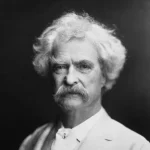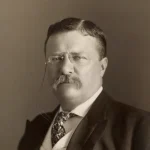“Some books are to be tasted, others to be swallowed, and some few to be chewed and digested.”

- January 22, 1561 – April 9, 1626
- Born in England
- Philosopher, theologian, jurist, politician, aristocrat
- Proposed the “inductive method” that laid the foundations of modern science, and influenced later generations as the founder of British empiricism
Quote
“Some books are to be tasted, others to be swallowed, and some few to be chewed and digested.”
Explanation
In this quote, Francis Bacon uses a metaphor to describe the different ways in which we engage with books and knowledge. He suggests that not all books are meant to be read in the same way—just as food can be tasted, swallowed, or fully digested, so too should our approach to reading vary. Some books are to be “tasted”—quickly skimmed or sampled for a general sense of their content. These are often light or superficial works that do not require deep engagement. Other books are to be “swallowed”—read more thoroughly and absorbed, but without the need for deep reflection. Finally, some books are to be “chewed and digested”—read slowly, carefully, and thoughtfully, requiring time and effort to truly understand and internalize their ideas. These are the books that provide profound wisdom or insight and often demand critical thinking and reflection.
Bacon’s metaphor reflects the intellectual climate of the Renaissance, when there was a growing emphasis on learning and critical thinking, but also a recognition that not all texts were of the same value or required the same level of attention. During this time, the printing press had made literature more accessible, and people were beginning to confront the overwhelming amount of information available to them. Bacon’s insight suggests a more discerning approach to reading, encouraging readers to engage with texts according to their depth and purpose.
In modern times, Bacon’s analogy is still highly relevant in the age of information overload and digital content. Today, people are constantly consuming books, articles, and online content, but not all of it warrants the same level of engagement. For instance, popular fiction or news articles may be read quickly and consumed for entertainment or general knowledge, while academic texts or philosophical works require deeper reflection and analysis. Bacon’s distinction helps us navigate the vast sea of information, suggesting that we approach our reading with purpose, choosing when to skim, when to immerse, and when to reflect deeply on the material.


